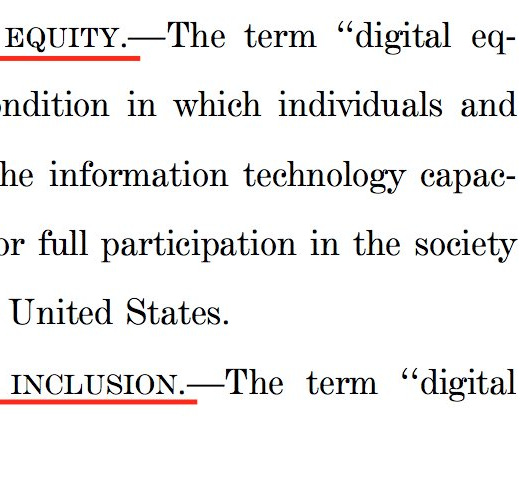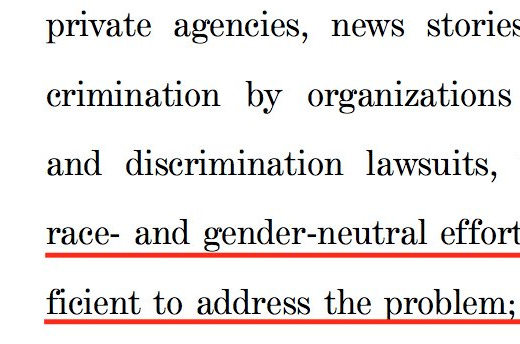E-Pluribus | August 10, 2021
Backtracking on the Enlightenment, "Gender Equality" and politics, and don't be so judgy.
A round up of the latest and best writing and musings on the rise of illiberalism in the public discourse:
David C. Geary and Gijsbert Stoet: The World Economic Forum and the Misleading Politics of Gender Equality
Though the word “outcome” itself implies an end point, too often those who study gender inequality use it as a starting point, at least in the areas where it suits their apparent purposes. Writing at Quillette, David Geary and Gijsbert Stoet critique the politicization of World Economic Forum’s Global Gender Gap Index, as well as offer their more realistic and meaningful Basic Index of Gender Inequality as an alternative frame of reference.
There are two points embedded in these two sentences that give us a glimpse at the politics behind the GGGI. The first is that although the GGGI purports to only measure outcomes and not the inputs that create those outcomes, here they are asserting that a biological input results in a female advantage in lifespan and this justifies the 1.06 benchmark. It is true that males have shorter lifespans than females in species with intense male-on-male competition for status and access to mates,2 so the assertion that women naturally live longer than men (assuming a relatively benign environment) is correct. But the reliance on inputs in this instance opens the door to a more thorough examination of the core sources of the overall GGGI gap.
This brings us to the second and most critical point: The same evolutionary and biological processes that, all other things being equal, result in a shorter average lifespan for men than women also contribute to the sex differences in economic outcomes (e.g., annual income) and political participation. It is the gap on these dimensions that drives the overall GGGI gap in highly developed countries and triggers political posturing and handwringing. As noted, a gap in healthy lifespan is common in mammals in which males compete more intensely than females for status and resource control (e.g., territory)—in comparison to females, males of these species generally grow more slowly, are physically larger, behaviorally more aggressive, and have shorter lifespans. The sex differences in economic and political engagement are a modern-day reflection of this more fundamental sex difference in the motivation to achieve status and resource control.3 In every culture in which it has been studied and across historical periods, higher status conferred (and still confers) more reproductive gains to men than to women, and in many contexts influences which men reproduce and which do not, as detailed in an earlier Quillette article. Indeed, one of the factors that contributes to the lifespan gap is the wear and tear of men’s more intense competition (e.g., working long hours) for status and resource control.
Read it all.
Abigail Shrier: Don't Judge Me
While Donald Trump and the even more recent newcomer to politics J.D. Vance have their detractors for their populist styles, Abigail Shrier says there are lessons to be learned from their appeals to a set of common experiences that can be overlooked in more high-minded or elitist approaches to politics. Shrier argues that even Joe Biden projects (at least to a subset of voters) an identification with real-world concerns and non-judgmentalism that can win over voters looking for “normal.”
[I]f politicians have something they want Americans to hear, they ought to dispense with the habits of self-righteousness, superiority and blame. Those ugly tics may help raise the Twitter waves that the Democrats’ mean girls surfed to fame: AOC & Friends. But they are turnoffs to an America that knows there is no “us” and “them” when it comes to pain and hardship and worry.
[…]
We are awfully fatigued by the finger-pointing and division. We hear much about what’s wrong with America, and what’s wrong with us. All of our national heroes have been denigrated: The Founders, yes, but even those who destroyed slavery, like Grant and Lincoln. Our children are getting the message; they head off to the Olympics and turn their backs on the American flag. Spare us talk of their high-minded principles: Young people manifesting that level of disrespect aren’t headed anywhere good.
We could stand to hear a few things about what’s good about us, what’s great about this country. Pessimism about the future of America is high and rising across all age groups. Please tell us something, anything, that we might feel good about; please give us hope that America might be better next year.
Read the whole thing.
Kyle Smith: Undoing the Enlightenment
Writing at National Review, Kyle Smith aims a polemic at those he sees at orchestrating what he calls the Disenlightenment, a reversal of the advances in “reason, rationality, and empiricism” of the last few centuries. Both the left and right bear responsibility for the damage being done, Smith alleges, and it will require a conscious, sustained effort from both sides of the political continuum to prevent further decline.
Undoing the Enlightenment is an astonishingly bold undertaking that runs so contrary to centuries of progress in learning that it requires the frenzy of a guilt-wracked cult to sustain it. The Disenlightenment is fueled by a religious ecstasy that shares some characteristics with the Reformation (notably a dizzying rebirth of iconoclasm with no clear goal except the orgiastic thrill of destruction), while its reason-denying and reactionary elements recall the Romantic movement. Its unendingly bleak and despairing undertones set it apart, however, from the passion of Byron or Beethoven. No salvation or endpoint is ever suggested; the more vigorously the culture flatters and bends to the will of the Disenlighteners, the more they demand. “The only remedy to past discrimination is present discrimination. The only remedy to present discrimination is future discrimination” — Ibram X. Kendi’s now-famous precept is a chilling vision of scales that will never be balanced.
[…]
A dissatisfaction with Enlightenment rationalism, together with the spiritual void created by the turn from God to humanism, sparked the Romantic fad for new forms of mysticism and transcendence. As Steven Pinker notes in his book Enlightenment Now: The Case for Reason, Science, Humanism, and Progress, the Romantic movement was steeped in a kind of manic faith in progress, albeit one achieved via “mystical forces, laws, dialectics, struggles, unfoldings, destinies, ages of men, and evolutionary forces that propel mankind ever upward toward utopia.”
[…]
On the left, the catechisms of race and sex upend our hard-won understanding of justice as blind, fairness as a matter of rules-based procedure, and knowledge as independent of the identity of its discoverer. On the right, there is widespread refusal to accept unwelcome facts or the value of expertise. On both sides, disdain for science and reason is surging. The constituency for undoing the intellectual work of three centuries is broad. Writes Weiss on her Substack, “Revolutions can be bloodless, incremental and subtle. And they don’t require a strongman. They just require a sufficient number of well-positioned true believers and cowards.” A thought revolution is well under way, and its target is truth itself.
Read it all here.
Around Twitter:
A cancel culture incident interrupted by reality, fortunately before an innocent person’s life was ruined. Here a thread from Steve Staeger on the Major League baseball’s much ado about nothing this past weekend:
Via Andrew Sullivan: “The bigotry of no expectations.”
Sometimes the Communist Chinese government just lets its authoritarianism all hang out. Via “China state-affiliated media”:
And finally, at one time or another, apparently everything will be infrastructure:














